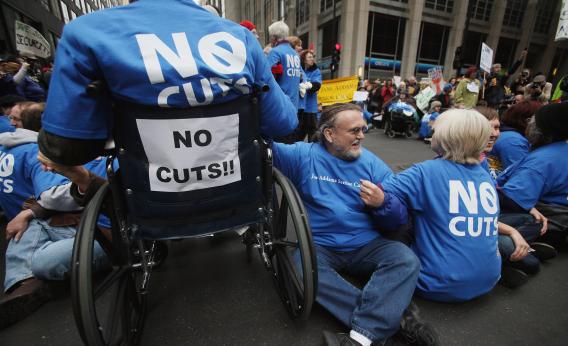Conservatives don’t like Medicaid because they believe programs that tax the rich to transfer resources to the poor are bad for long-term economic growth and violate principles of cosmic justice. But since nobody likes to admit to the existence of a tradeoff, conservatives have lately taken to mounting the bizarre argument that giving health care to low-income poor people doesn’t improve health outcomes.
Now along comes “Mortality and Access to Care Among Adults After State Medicaid Expansions” in the New England Journal of Medicine providing further empirical evidence for the normal view that, yes, health care services help save lives. They looked at New York, Maine, and Arizona—three states that substantially expanded Medicaid eligibility in the aughts—and compared county-level all-cause mortality rates for working age adults in those states as compared to neighboring states. They found that expanding Medicaid coverage to 500,000 new adults was associated with the prevention of about 2,840 deaths.
Harold Pollack and Aaron Carroll run the numbers and find that comes out to about $1 million per year in spending per prevented death. Not a bad deal in my opinion.
